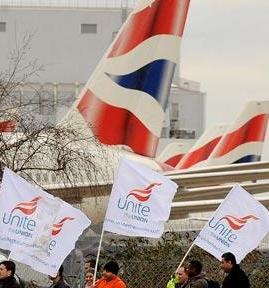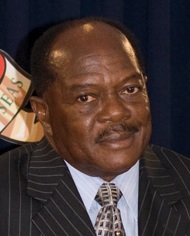Archive for May 24th, 2010

BA strike causes wide disruption
 (Financial Times): Thousands of British Airways passengers faced disruption to their travel plans on Monday after 1,200 cabin crew began a five-day srike. Talks to resolve the dispute over the weekend ended in acrimony with both the company and leaders of the Unite union blaming each other for the failure to come to a deal. As of early Monday, about 40 per cent of scheduled departures and 30 per cent of arrivals at Heathrow – Europe’s busiest airport – had been cancelled, the airline said. Flights from two other London airports, Gatwick and City, were not affected by the strike. The airline said it was able to operate more than 60 per cent of the long-haul programme and 50 per cent of short-haul flights. According to the BA web site flights this week from Grand Cayman to London have been cancelled.
(Financial Times): Thousands of British Airways passengers faced disruption to their travel plans on Monday after 1,200 cabin crew began a five-day srike. Talks to resolve the dispute over the weekend ended in acrimony with both the company and leaders of the Unite union blaming each other for the failure to come to a deal. As of early Monday, about 40 per cent of scheduled departures and 30 per cent of arrivals at Heathrow – Europe’s busiest airport – had been cancelled, the airline said. Flights from two other London airports, Gatwick and City, were not affected by the strike. The airline said it was able to operate more than 60 per cent of the long-haul programme and 50 per cent of short-haul flights. According to the BA web site flights this week from Grand Cayman to London have been cancelled.

Decolonisation seminar examines nation building
 (CNS): The issue of nation building was a key part of the discussions at last week’s United Nations Seminar in Noumea, New Caledonia. During the three-day annual regional conference of the Special Committee on Decolonisation, committee chair Donatus Keith St. Aimee of Saint Lucia said it was an essential prerequisite to successful self-determination. He said economic and social development, as well as education about self-determination processes and options, should be in place before any decision on self-determination was taken, according to a release from the seminar. The Cayman Islands was represented at the gathering by local attorney Steve McField. (Photo by Dennie Warren Jr)
(CNS): The issue of nation building was a key part of the discussions at last week’s United Nations Seminar in Noumea, New Caledonia. During the three-day annual regional conference of the Special Committee on Decolonisation, committee chair Donatus Keith St. Aimee of Saint Lucia said it was an essential prerequisite to successful self-determination. He said economic and social development, as well as education about self-determination processes and options, should be in place before any decision on self-determination was taken, according to a release from the seminar. The Cayman Islands was represented at the gathering by local attorney Steve McField. (Photo by Dennie Warren Jr)
Amiee noted that a great deal of discussion on decolonisation focused on the political role of the administering power, which, while obviously important, should not be seen as the only facet of the process. Encouraging private sector actors in a territory to be good corporate citizens was also vital. “If they don’t reflect a sense of goodwill, it makes the job of the administering power and the local authorities much more difficult,” he said. “If we can encourage the private sector to become good corporate citizens, and if the population can see that resources are being used for their benefit, then this contributes to a sense of trust and nation-building.”
The chairman noted that all participants had made valuable contributions, with many of their suggestions laying down challenges of thinking and method for the Special Committee. “You have thrown down the challenges and we have given an undertaking to respond,” he added. The seminar’s conclusions and recommendations would be refined in light of the morning discussions for consideration at the Special Committee’s next substantive session in New York in June, he said.